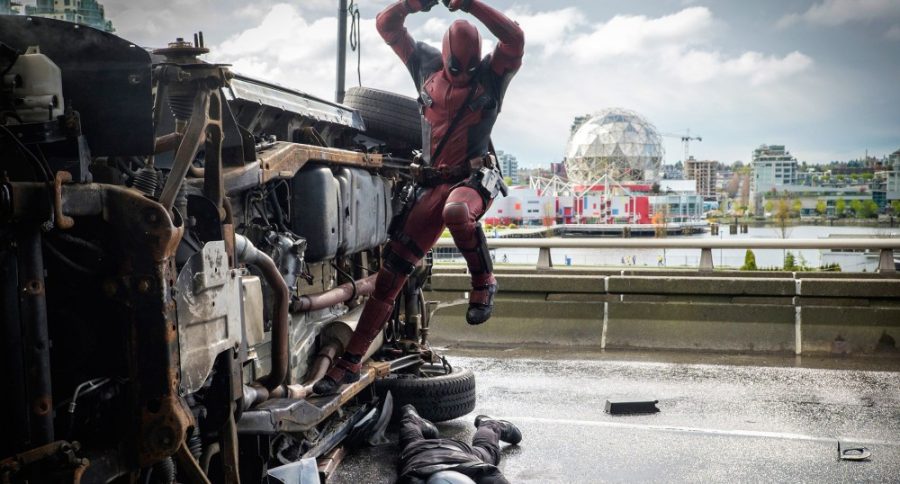For years, superhero films have been used to appeal to a younger audience that seeks to bring out childhood fandoms.
Movies like “Spider-Man,” “Iron Man” and “The Avengers” have captivated the minds of children across the globe, bringing them the joy of expressing a sense of fictional identity as well as pure enjoyment.
“Deadpool” is not one of those films.
Unlike preceding superhero movies, “Deadpool” approaches the superhero genre from a different angle. It utilizes elements such as comedy and violence to create an anti-hero film that is geared toward an adult audience.
The movie begins with a narration from Wade Wilson, aka Deadpool, who is on a quest to find Francis Freeman, a secret program enforcer who was responsible for strapping Wilson in an airtight chamber that removed his terminal cancer, but disfigured his face and skin in the process.
The film then reverts back two years to when Wilson worked as a mercenary who spent his time protecting females from their stalkers in exchange for money. After becoming romantically involved with a woman named Vanessa, who shared his wits and values, Wilson is diagnosed with terminal cancer, prompting him to undergo an experimental procedure designed to cure cancer by triggering latent mutations.
After undergoing one last tortuous experiment designed by Freeman, Wilson gains regenerated abilities at the expense of developing body psoriasis. Determined to be free of his new self, Wilson seeks out Freeman and vows to get revenge for what he did. From there on out, the film follows a storyline that every comic book fan would expect.
Unlike traditional superhero films that seek to expand their plot, “Deadpool” does not offer much in terms of story expansion. The events following Wilson’s escape, such as Vanessa’s being captured and Wilson’s hunting down Freeman’s organization, are predictable and demonstrate a lack of creativity or laziness, if you will.
As the film progresses, however, the audience begins to see a side of Wilson that is not shown in the beginning of the movie. A low-rent vigilante who relied on his wits and fear to intimidate others has suddenly transformed into a new character who is unable to come to terms with his new self. It is this transformation that helps the audience feel sympathy for an anti-hero like Deadpool, despite his lack of heroic qualities.
Character transformation is not the only vital aspect of the film. Unlike other films, “Deadpool” relies mostly on the power of humor, crude language and violence to help shape its dynamic.
The movie spends most of its time using profanity as the basis for its dialogue, while making references to other films such as “X-Men” and Ryan Reynolds’ failed franchise “Green Lantern.”
As for violence, “Deadpool” favors swords, pistols and hand-to-hand combat as is shown in a climactic battle scene at a scrap yard. With the help of other mutants Colossus and Negasonic Teenage Warhead, Deadpool engages in an all-out assault against Freeman and his companion Angel Dust.
Overall, while the film fails to expand on its story, it does manage to combine critical aspects such as humor and action while presenting a different taste for superhero films.
Grade: A-
Follow Ernesto Fierro on Twitter.









